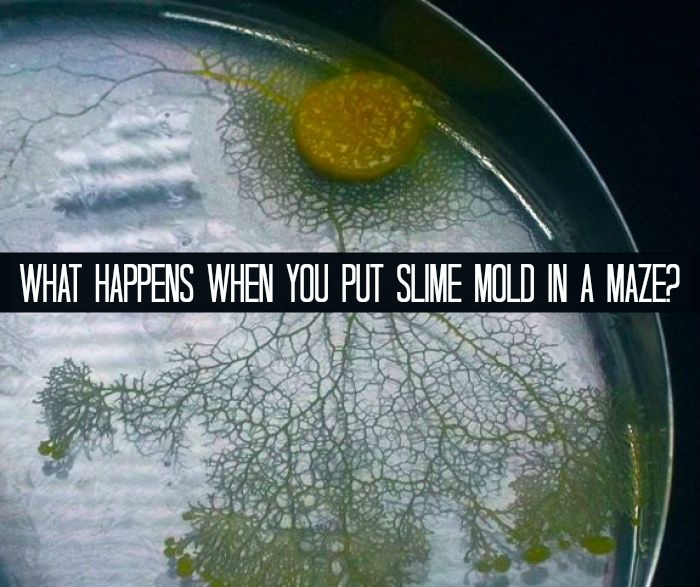
In what might be one of the strangest questions you’ll ponder this week, we ask, “what would happen if you put slime mold (the unscientific nickname of Physarum polycephalum, a yellowish organism that consumes fungal spores and is incredibly sensitive to light) in a maze?
You wouldn’t think much would happen, as these are gelatinous amoebae composed of the most basic types of cells, but the answer to this question will likely stun you.
WATCH: Slime Mold Solves Maze
That’s right, these gelatinous blobs are not nearly as basic as one might expect them to be, they are intelligent enough to successfully complete a maze!
Obviously, this discovery shows that we have a lot to learn about these interesting forms of life. What’s more, we might also need to redefine what constitutes intelligence. According to Scientific American, they can not only solve mazes, but they can also “mimic the layout of man-made transportation networks and choose the healthiest food from a diverse menu—and all this without a brain or nervous system”
Once you understand the science, it all seems to make sense. Even though they don’t have brains (as we traditionally conceive of them), they are able to “solve” mazes because of the basic way that they function. In short, slime molds avoid oozing back over paths that they have already traveled down. It is believed that they do this because, if they had been that way and left, it is because there was no food (or they consumed it all).
In a paper published in the Proceedings of the National Academy of Sciences (PNAS), the researchers asserted that a “memory system” like this one supports “the theory that an externalized spatial memory may be the functional precursor to the internal memory of higher organisms.” Ultimately, if the slime mold is able to detect its own slime, and this recognition (of its own particular chemical pattern) were somehow internalized into its body, then we could consider this a (very) primitive form of a neural system.
Researcher Chris R. Reid even stated, “I, for one, welcome our new gelatinous overlords” (Empire of the Ants, Kent Brockman, anyone?).